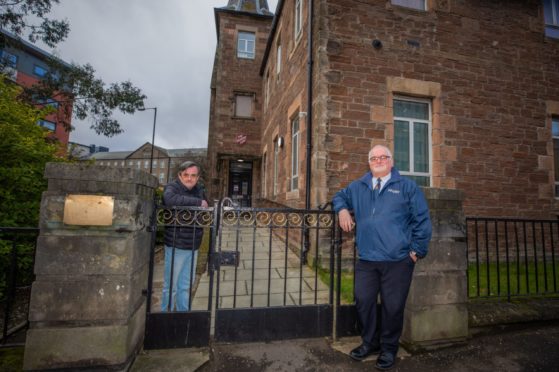A charity has called on the Scottish Government to intervene to avoid a homelessness crisis engulfing Dundee.
The Salvation Army has claimed people could be trapped in unsuitable accommodation like bed and breakfasts for longer as rising levels of homelessness due to the Covid-19 pandemic causes a “bottleneck” situation.
The Homelessness in Scotland report, conducted by the Salvation Army, has raised concerns about the funding within Dundee City Council to cope with demand in the months ahead.
The council has said it is making “good progress” in combating the housing crisis as a result of the pandemic, but The Salvation Army’s costings tool has found that, after providing housing to those in need has been covered, the council will have used up its entire homelessness budget.
It will also be in a £6.9million deficit.
It means the council will have find other ways to meet the costs of vital homelessness services within the community like outreach support.
Malcolm Page, assistant director of homelessness services for The Salvation Army, said: “The concern we have right over Scotland, as well as Dundee, is that budgets and the government’s provisions have been agreed looking backwards and taking into accounts the needs for homelessness in previous years.
“As we come out of the pandemic we are expecting a huge surge of people to require the use of homeless services after the ban on evictions is lifted and furlough is gone.
“Now it’s important we meet that gap in funding.
“Many people will find themselves requiring access to short term accommodation and being provided with temporary stays in places such as B&Bs.
“But with that, we expect to see the council using their budget on the massive costs of that alone, leaving little to no money to provide support to get people back into permanent housing.”
Last year, Dundee City Council had seen a 16% increase in people seeking temporary accommodation during the pandemic, with the total number of households increasing from around 300 in mid-May to 420 by mid-August.
The local authority is looking to tackle the issue by using a combination of different accommodation including its newly-deployed Housing First.
Housing First prioritises the right to a home above the obligation to engage with housing support services or transitional housing arrangements first.
The model is designed to meet the specific needs of homeless individuals with complex and interconnected support needs.
Malcolm added: “We are Housing First providers through our partnership with Dundee City Council and it is a really good tool but probably not the only resource needed.
“Housing First’s primary focus is to get a tenancy agreement for the individual, which Dundee has been very successful in doing, and then implementing a person centred approach for supporting them and ensuring they keep up with tenancy agreements whether that be with statutory support, debt management or substance abuse support.
“There is a lot of contributing factors to homelessness and we need to ensure that these issues are supported for as long or for as short a period as needed.
“That is why it is so important that funding to close that gap is found so that the support can continue to be provided.
“Unfortunately as a charity the Salvation Army has seen their public giving greatly reduced, something which has hit a lot of charities hard.
“Without the additional means being found to support the inevitable rise in need we will be unable to step up and fill that gap ourselves.”
Sam Evans, 53, found himself trapped as he was moved from one temporary home to another after he became homeless in 2013.
It was through the Salvation Army and their support that he was able to move into his own home after months of turmoil.
Sam, who now works alongside the Salvation Army’s catering team at Strathmore Lodge, has said it’s vital those requiring homes during or after the pandemic are supported.
“I was in and out of hostels and B&Bs, and it became a minefield as to where I would end up next,” he said.
“Some of the accommodation was terrible and had a damaging impact on my mental health. I was just a meal ticket for many temporary accommodation providers as there was no support.
“I was put in touch with The Salvation Army’s Strathmore Lodge for emergency support and then moved to Burnside Mill where I stayed for six months before I was given my own flat. The support I received there was absolutely amazing and they had so much time for everyone’s individual needs which was massively important.
“I was suffering a lot with my mental health and I 100% would not be where I am now without the support I received there.
“That’s why funding for support as well as a roof over your head is so important as if I can get through this and be where I am now eight years later anyone can.
“Now I’m able to give back to The Salvation Army as well as helping people who are in a situation I was in myself.”
A Dundee City Council spokeswoman said: “We have been working with local partners to transform our homeless services to tackle the challenges of the coronavirus crisis and maintain support to some of the most vulnerable people in the city.
“Our Rapid Rehousing Transition Plan on homelessness in Dundee shows that are we continuing to make good progress to tackle homelessness.
“The Covid-19 outbreak and lockdown has had a significant impact on the terms of homelessness, including an increase in people requiring temporary accommodation. In order to meet this significant demand, the council has had to increase its network of furnished flats and temporary accommodation.
“The council has a statutory duty to house people who are homes, and we take that extremely seriously.”
